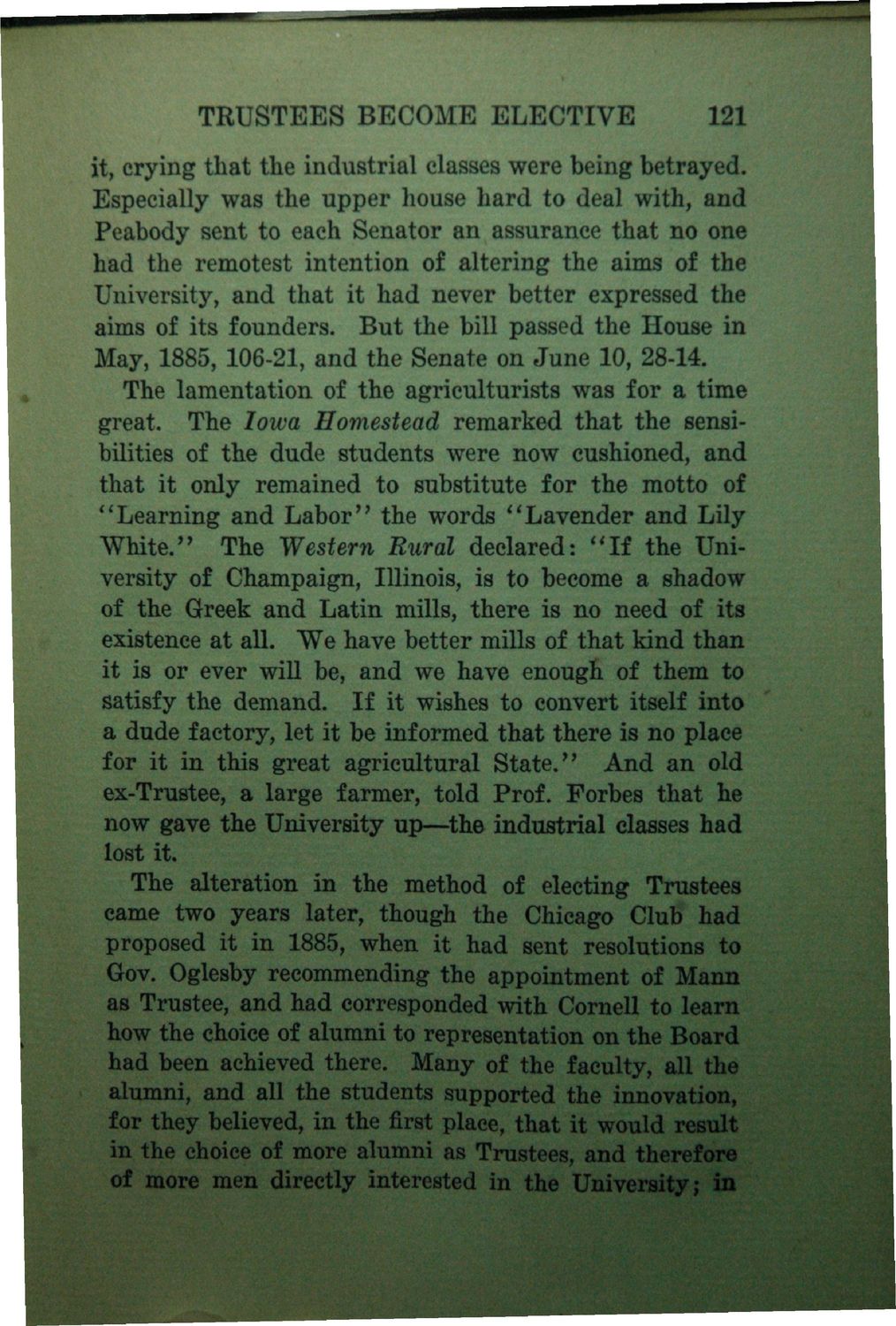| |
| |
Caption: Book - History of the University (Nevins)
This is a reduced-resolution page image for fast online browsing.

EXTRACTED TEXT FROM PAGE:
TRUSTEES BECOME ELECTIVE 121 it, crying that the industrial classes were being betrayed. Especially was the upper house hard to deal with, and Peabody sent to each Senator an assurance that no one had the remotest intention of altering the aims of the University, and that it had never better expressed the aims of its founders. But the bill passed the House in May, 1885,106-21, and the Senate on June 10, 28-14. The lamentation of the agriculturists was for a time great. The Iowa Homestead remarked that the sensibilities of the dude students were now cushioned, and that it only remained to substitute for the motto of "Learning and Labor" the words "Lavender and Lily White." The Western Rural declared: " I f the University of Champaign, Illinois, is to become a shadow of the Greek and Latin mills, there is no need of its existence at all. We have better mills of that kind than it is or ever will be, and we have enougfi. of them to satisfy the demand. If it wishes to convert itself into a dude factory, let it be informed that there is no place for it in this great agricultural State." And an old ex-Trustee, a large farmer, told Prof. Forbes that he now gave the University up—the industrial classes had lost it. The alteration in the method of electing Trustees came two years later, though the Chicago Club* had proposed it in 1885, when it had sent resolutions to Gov. Oglesby recommending the appointment of Mann as Trustee, and had corresponded with Cornell to learn how the choice of alumni to representation on the Board had been achieved there. Many of the faculty, all the alumni, and all the students supported the innovation, for they believed, in the first place, that it would result in the choice of more alumni as Trustees, and therefore of more men directly interested in the University; in
| |